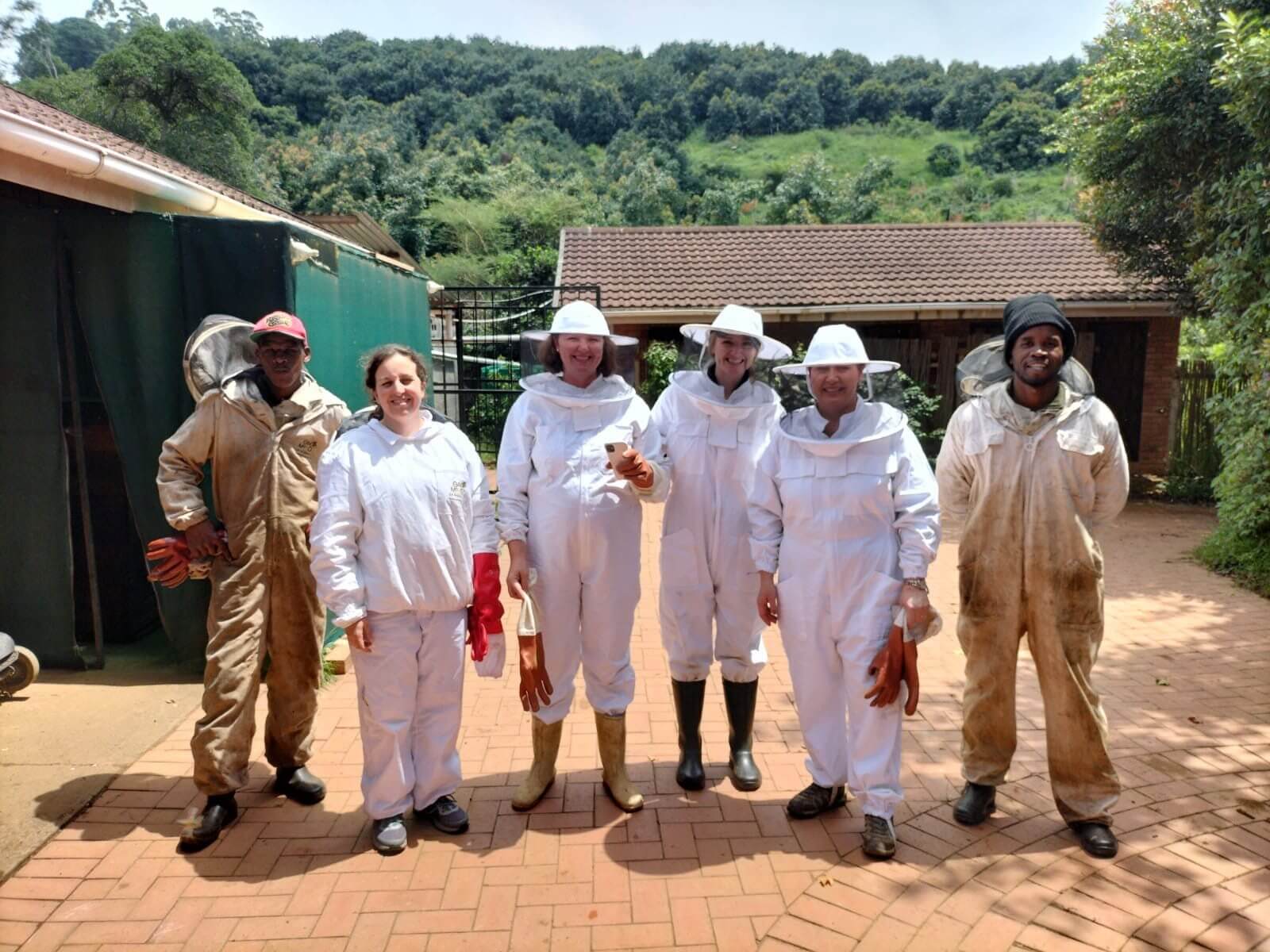The beekeeping industry in South Africa has been facing numerous challenges that have threatened its sustainability. Issues such as aging beekeepers, low honey prices, inadequate training, vandalism, and a scarcity of young commercial beekeepers entering the field have cast valid concerns over the future of apiculture in the country. However, a groundbreaking project funded by the Foreign, Commonwealth & Development Office (FCDO)'s Frontier Technology Livestreaming fund is offering hope and paving the way for the future of beekeeping in South Africa.
The project is a collaboration between CHAP, Agrisound, and Cropimpi. CHAP, a leading agri-tech innovation hub, is spearheading the initiative while Agrisound, a UK-based pollination management technology company, and Cropimpi, an R&D organization based in South Africa, bring their expertise to the table. The main objective of this innovative endeavor is to explore the potential of utilizing internet-of-things (IoT) technology to revolutionize the beekeeping industry in South Africa.
One of the aspects of the project is providing beekeepers with real-time data from in-hive sensors. These sensors measure crucial metrics such as colony acoustics, temperature, humidity, and light and motion detection to identify potential hive theft. By empowering beekeepers with these valuable insights, the project aims to improve beekeeping practices and create economic opportunities for underserved groups in South Africa's KwaZulu Natal and Western Cape provinces.
The project's first phase focused on the KwaZulu Natal province, home to the African honeybee species. Twenty-five participants from diverse backgrounds across the province were selected, ranging in age from 19 to 80 years old. The group comprised approximately 60% male and 40% female participants, with 12% identifying as having a disability.
During this initial phase, comprehensive online training modules were created for the beekeepers. These modules covered a wide range of topics including hive health, installation, components, and beekeeping tips. The training materials were tailored based on insights gathered from an initial participant onboarding survey that assessed the beekeepers' skills, prior experience, knowledge, and methods of generating income from apiculture. The assessment following the training recorded a 100% completion rate with an average score of 80%. The data collected from the survey and quiz will serve as a valuable baseline for future surveys, which will evaluate whether the IoT devices have boosted hive production and business profitability.
As part of the first phase, 100 AgriSound in-hive sensors were distributed among the 25 participating beekeepers. These sensors were strategically placed in different locations within the KwaZulu Natal province. Prior tests were conducted to ensure the proper functionality of the IoT devices, including assessing the 3G/4G connectivity in each location and installing wireless sensors and Gateway Units.
The success of the first phase validated crucial assumptions, such as the demand for improved beekeeping practices across diverse user groups and locations. It was also confirmed that 3G/4G connectivity adequately supports the functioning of IoT devices in different areas. The project will enter its next phase, which involves gathering data from in-hive sensor devices in KwaZulu Natal and the Western Cape provinces. The Western Cape is home to the Capensis bee, and data collected from this region will provide insights into potential variations in bee behaviors and hive conditions across different species and regions.
In addition to data collection, the team will organize knowledge dissemination events in Cape Town and at the Honey Festival in KwaZulu Natal. These events will feature technology showcases, project overviews, initial findings, and participant case studies, serving as platforms to share knowledge and inspire further interest in the potential of IoT technology in beekeeping.
The success of the first phase of this international project marks a significant step forward for the future of beekeeping in South Africa. By harnessing the power of IoT technology and providing beekeepers with real-time data, the project aims to improve beekeeping practices, increase productivity, and create viable income sources within the industry. With continued efforts and the collaboration of various stakeholders, the future of apiculture in South Africa looks brighter than ever.
Image Provided by CHAP



4 Comments